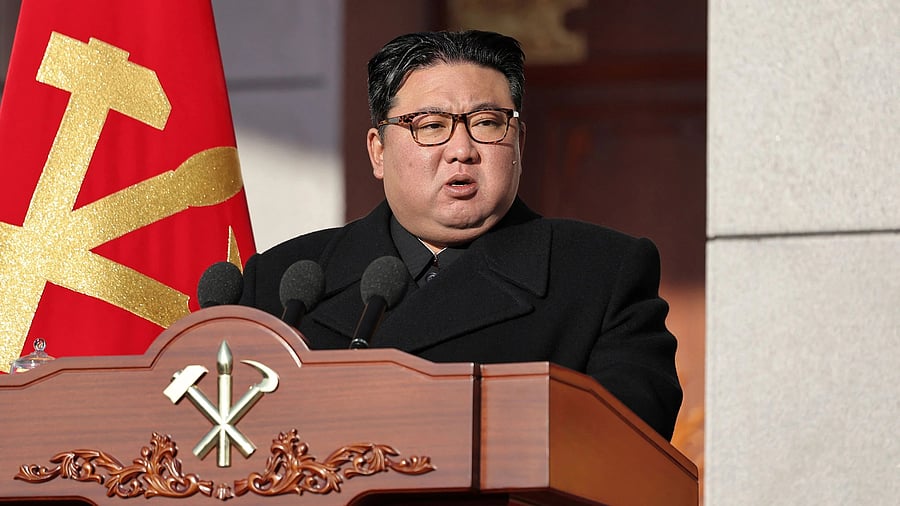
North Korean leader Kim Jong
Credit: Reuters photo
In a striking irony, Kim Jong Un's regime, once seen as a source of hope, has turned into a harsher era for North Koreans than it was a decade ago, with the government imposing death penalty for watching foreign films and TV dramas, according to a United Nations (UN) report.
At a briefing in Geneva on Friday, James Heenan, head of the UN Human Rights Office for North Korea, told an unspecified number of people had already been executed under new laws imposing the death penalty for distributing foreign TV series, including popular K-Dramas from South Korea.
Kang Gyuri, a refugee from North Korea, who escaped in 2023, told the BBC that three of her friends were executed after being caught with South Korean content. She was at the trial of one 23-year-old friend who was sentenced to death.
Representative image for death sentence.
Credit: iStock Photo
"He was tried along with drug criminals. These crimes are treated the same now," she said, adding that since 2020 people had become more afraid as the number of executions for both normal and political crimes had increased, especially under COVID-era restrictions.
While citizens had initially believed Kim Jong Un's regime would improve their lives, but in contradiction to their expectations people's living condition and human rights had 'degraded' as Kim stopped engaging in diplomacy with US or western countries instead focused on building weapons, affecting the daily lives of people in North Korea.
During the Covid pandemic, many escapees said that there had been a severe lack of food, and people across the country were dying of hunger.
Representational image of child labourer.
Credit: iStock Photo
Children and impoverished families were recruited into "shock brigades" involving hazardous tasks in coal mining and construction. Instead of improving the safety of the workers, the government glorified worker deaths as a sacrifice to Kim Jong Un.
The country's appalling human rights abuses take place at four political prison camps that still remains operating, where people can be locked up for life, tortured and then "disappeared".
The UN Human Rights Office noted that tech-enabled state surveillance and repression under the Kim dynasty, which has governed with absolute power for seven decades, what it called a decade of “suffering, repression, and increased fear”.
More than 10 years after a landmark, a UN report detailed widespread abuses including executions, rapes, torture, deliberate starvation, slavery, child and forced labour and the detention of between 80,000 and 120,000 people in prison camps.
The UN has urged that the situation be referred to the International Criminal Court in the Hague, while pressing the North Korean government to abolish its political prison camps, end the use of the death penalty and teach its citizens about human rights.
North Korean leader Kim Jong, Russian President Vladimir Putin, and Chinese President Xi Jinping arrive for a military parade marking the 80th anniversary of the end of World War Two, in Beijing, China.
Credit: Reuters Photo
Recently, Kim Jong Un, along with Russian President Vladimir Putin and other central Asian leaders visited Beijing, where he attended the military parade hosted by Chinese President Xi Jinping and his wife Peng Liyuan.
